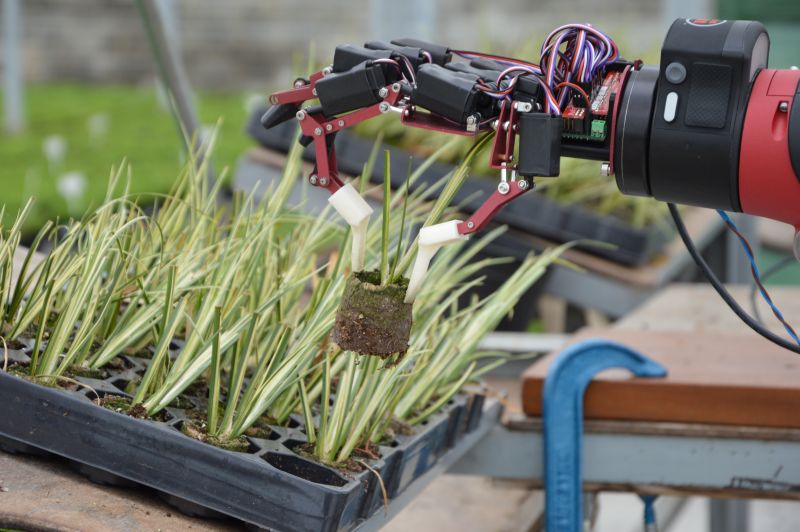
Innovative agri-tech projects, including fruit picking robots and autonomous crop systems, are set to benefit from a £24 million government fund.
The nine projects benefiting will apply big data, artificial intelligence and robotics to UK farming, with the aim of creating a more efficient system of food production.
It includes React First in Nottingham, which is receiving over £2m to generate clean, sustainable food for poultry with an up to 75% smaller carbon footprint.
The project will use technology to turn carbon dioxide from Drax Power’s Selby power station into animal food with minimal water usage and without the need for arable farmland.
Another project led by Saga Robotics in Lincoln will perform the largest known global demonstration of robotics and autonomous technologies on a farm.
The robots will assist farmers by carrying out essential, energy intensive physical farm processes such as picking and packing fruit and treating crops to reduce critical pests and diseases.
The world’s first Autonomous Growing System (AGS) will receive over £2m to provide autonomous technology that controls climate, irrigation and lighting, enabling crops to be grown in any location.
This will boost production levels and resource-efficiency in existing UK greenhouses, Optimal Lab, an agri-tech firm based in London, says.
Melanie Welham, executive director of Biotechnology and Biological Sciences Research Council (BBSRC), said British food production was a 'beacon of innovation'.
"These brilliant ideas have the potential to make food production more resilient, efficient and less resource intensive,” he said.
“In this funding round, we’ve awarded funding to 9 innovative companies. In the future, we encourage businesses to come forward with fresh ideas to help UK agriculture.”
Other projects to receive the funding
• Production at the Point of Consumption (Maidstone) will receive nearly £850k to develop the next generation of autonomous growing systems.
• InFarm2.x (London) will receive £3m to develop a farming system that can grow fruit and veg by producing crops in vertically stacked levels.
• AGRI-SATT (London) will receive £4m for its project which is based around an algae growing system that exploits natural seawater to produce food in deserts.
• GelPonic (Manchester) will receive £1m to develop a material that conserves water and protects plants by filtering pathogens.
• REMEDY (Bath) will receive o£1.7 m to provide precision technologies to dairy farmers enabling them to access real time data to ensure their farm is as productive.
• TUBERSCAN-DEMO (Lincoln) will receive £2m to develop an innovative demonstrator system to measure average potato sizes and yield throughout potato fields.
